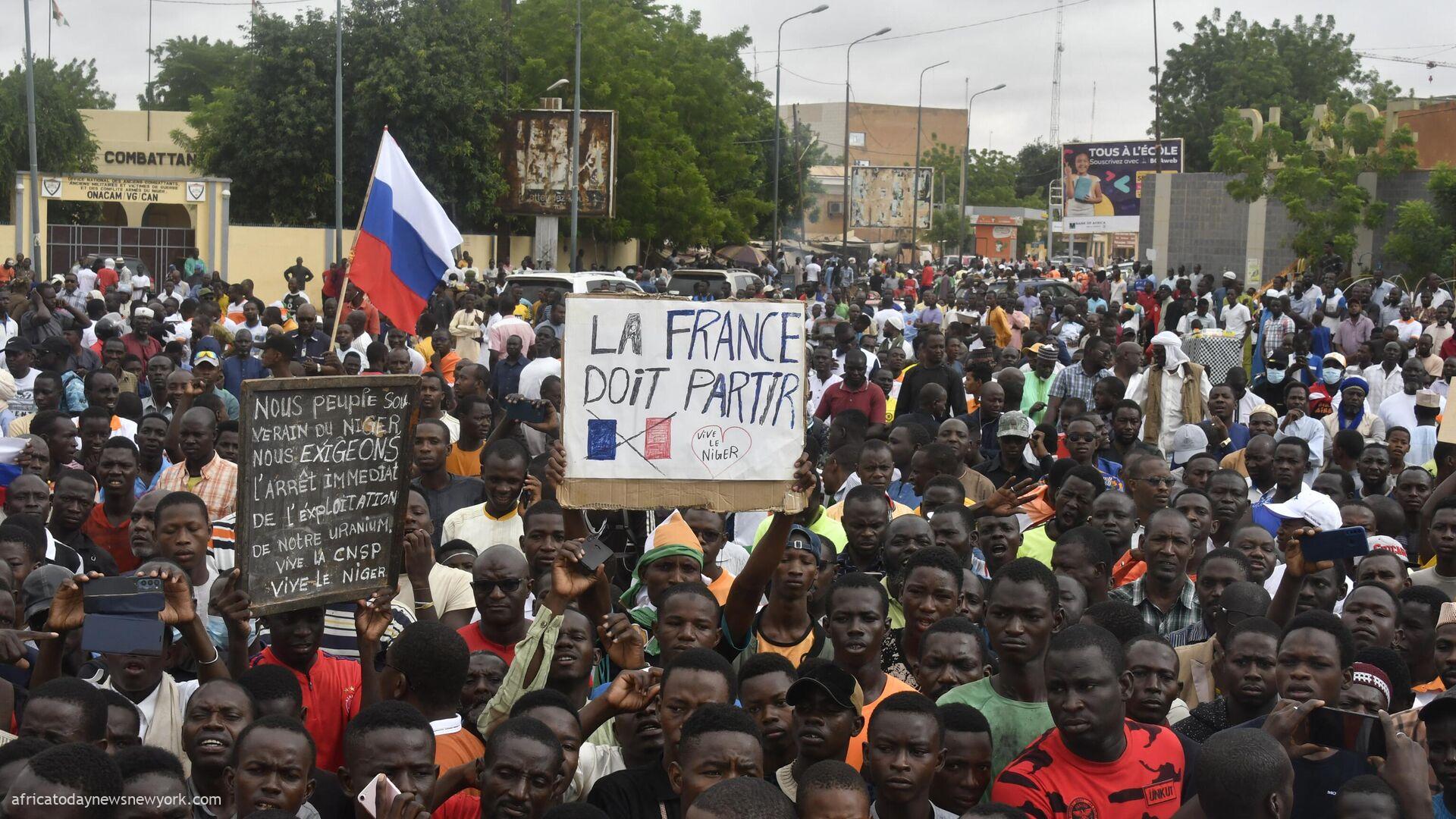France has concluded plans to close its embassy in Niger Republic, where anti-French sentiment has grown since a July coup, due to a staff exodus following an attack left it unable to function, diplomatic sources said on Friday morning.
According to very close sources; ‘After the attack on our embassy July 30, and the setting up of a blockade around our building by Niger forces, most of our diplomatic staff left in late September’.
‘The French embassy in Niger is therefore no longer able to function normally or fulfil its missions. Taking note of this situation, we have decided to close our embassy.’
Local staff members have been dismissed and compensated, the sources added.
Relations between Niger and former colonial power France soured after the military ousted elected leader Mohamed Bazoum in a coup on 26th of July.
The Sahel country’s new rulers scrapped defence deals with its traditional security partner, expelled the French ambassador and has forged closer ties with Russia.
French troops based in Niger as part of an anti-jihadist mission are due to complete their withdrawal this month.
In another report, crude prices slumped yesterday after Angola quit the OPEC oil cartel, while Wall Street stocks rebounded after a streak of records was snapped.
The price of the main international and US crude contracts dropped more than 1.5 percent after Angola said it was leaving as it did not want to go along with further production cuts that OPEC and 10 Russian-led allies agreed last month.
They later pared their losses.
In an effort to prop up prices, the OPEC+ alliance has implemented supply cuts of more than five million barrels per day (bpd) since the end of 2022.
But oil prices still slid to their lowest levels in nearly six months following the latest OPEC+ decision. The United States has been pumping at record rates, as have Brazil and Guyana, while the weak global economy has raised concerns about demand.
ActivTrades analyst Ricardo Evangelista said the departure of Angola, a relatively small producer at 1.1 million barrel per day, would hurt OPEC less than if it had been a big producer such as Iraq.

